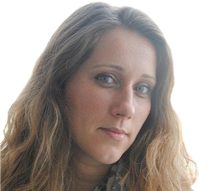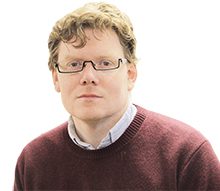The collapse of hearings into five senior teachers accused of imposing a hardline interpretation of Islam on secular schools in Birmingham has brought renewed focus to the question of whether schools are equipped to identify and mitigate the risks of extremism. Focus on this problem is no fool’s errand: Islamists in the UK – those for whom Islam is not a religion but an all-encompassing and intolerant societal project – have long understood the role education plays in inculcating and propagating ideas. The extremist group Hizb ut-Tahrir argues that Muslim children should be protected from “kufr” – a derogatory term for disbelief – values “such as freedom and democracy“, while members of al-Muhajiroun – the group linked to one of the London Bridge attackers – set up an unregistered Islamic school and encouraged home-schooling to isolate their children.
Attention was drawn to Birmingham in 2014 with the publication of an unsigned letter that outlined the takeover of local authority schools in communities with large Muslim populations. That letter, which purported to be from someone involved in the plot, is now thought to be a hoax, but the investigations it triggered made it clear that something was deeply awry in these schools. Peter Clarke’s independent report for the Department for Education found that children were learning to “be intolerant of difference and diversity” and raised fears that unquestioning acceptance of a hardline interpretation of Sunni Islam would inhibit their resilience to extremist influences. Clarke’s report also included transcripts of discussions in 2013 on a WhatsApp group of senior Park View staff that revealed remarkable intolerance to both non-Islamic faiths and Muslims deemed insufficiently Islamic. Ian Kershaw’s report for Birmingham City Council found that “activist governors” were placing inappropriate demands on headteachers with regards to religious education, sex and relationship education and the introduction of Islamic assemblies (without authorisation).
Children’s wellbeing was at risk in such an environment, but so was that of teachers. Both Clarke and Kershaw found evidence that the council had failed to recognise the scope of the abuse and had – at times – exacerbated it, resorting to compromise agreements rather than supporting under-siege headteachers. The breakdown of disciplinary proceedings follows the continuation of that uncomfortable atmosphere. Last year anonymous whistleblowers faced the very real prospect of their identities and unredacted transcripts being disclosed to the lawyers acting on behalf of those they had spoken out against. Many feared intimidation.
Teachers ‘afraid to speak out’
One former teacher at one of the schools told Policy Exchange that he had reported his concerns over a “small element of extremist proselytisers” but had – like many others – done so anonymously because he feared that the activists involved “would run campaigns, would make it difficult for us to live and work in Muslim communities”, adding that many feared community sanctions against their children who were also in local schools. Clarke – who found that these fears were widespread – was “appalled”.
This non-disclosure of anonymous witness statements from the Clarke inquiry was described as an “abuse of process“, and that is deeply unfortunate, but this falls short of an exoneration. The decision to discontinue disciplinary proceedings was based on procedural grounds – not on a shortage of evidence. Some have reacted to the collapse of proceedings with delight, positing it as evidence that the scandal was a “Trojan Hoax” all along. This is part of a wider campaign to discredit the counter-radicalisation strategy Prevent as an attack on Muslims; such views entrench the Islamist-driven perception of a state-sponsored war on Islamic belief and practice. Recent changes to teaching standards and the requirement to promote British values in schools, however, are not designed to curtail free speech, but rather they share the goal of encouraging pupils to engage with common values and critically assess the world they are part of. At the same time, they have functioned as a tool for the Department of Education to mitigate extremist influences in schools, including cases of undue far-right influence.
Extremism should be understood not as the holding of intolerant beliefs or conservative practices, but rather as the imposition of such views on others. Ofsted inspectors cannot base their assessment on the ideological beliefs of individual teachers and school leaders – they are rightly constrained by the school inspection handbook and their inspection framework – rather they ask whether a school’s character and ethos has been inappropriately shaped by such views to the detriment of both pupil safety and the opportunity to prosper in modern Britain.
If anyone is still in any doubt that the practices uncovered were inappropriate, just listen to the pupils and staff at the schools involved. At one primary school, pupils had previously told inspectors that it was “unfair” they could not have music lessons and that they wanted to learn about other cultures. A year later – after the governing body had been removed – pupils were keen to talk about how their school had improved. At secondary level, girls had told inspectors that some staff “actively discourage” them from speaking to boys or participating in extracurricular activities, while staff had reported feeling “fearful of speaking out“. Two years later, pupils and staff reported feeling safe, and inspectors observed pupils “relishing opportunities” to debate sensitive issues – such as diversity, sexuality and extremism – with maturity and respect.
Among the questions education officials need to ask themselves are what safeguards are now in place to protect children from this kind of abuse and how would it be dealt with – by local authorities and teaching unions, too – were it to happen again. Equally important is how to rebuild teacher confidence in the processes designed to protect them if they speak out. The Department for Education must review its procedures to find a way to balance the guarantees given to whistleblowers with the rights of those accused to fair proceedings – an independent lawyer to review anonymous statements might be a place to start. School leaders need reassurances that they will always be supported against those seeking to alter the character and ethos of schools in inappropriate ways, while – at an institutional level – there needs to be less timidity shown when identifying and responding to all forms of extremism. Above all else, all children – regardless of their faith or none – deserve an education that prepares them to take advantage of all the rich opportunities our society offers them.
This article was featured in the Times Educational Supplement


